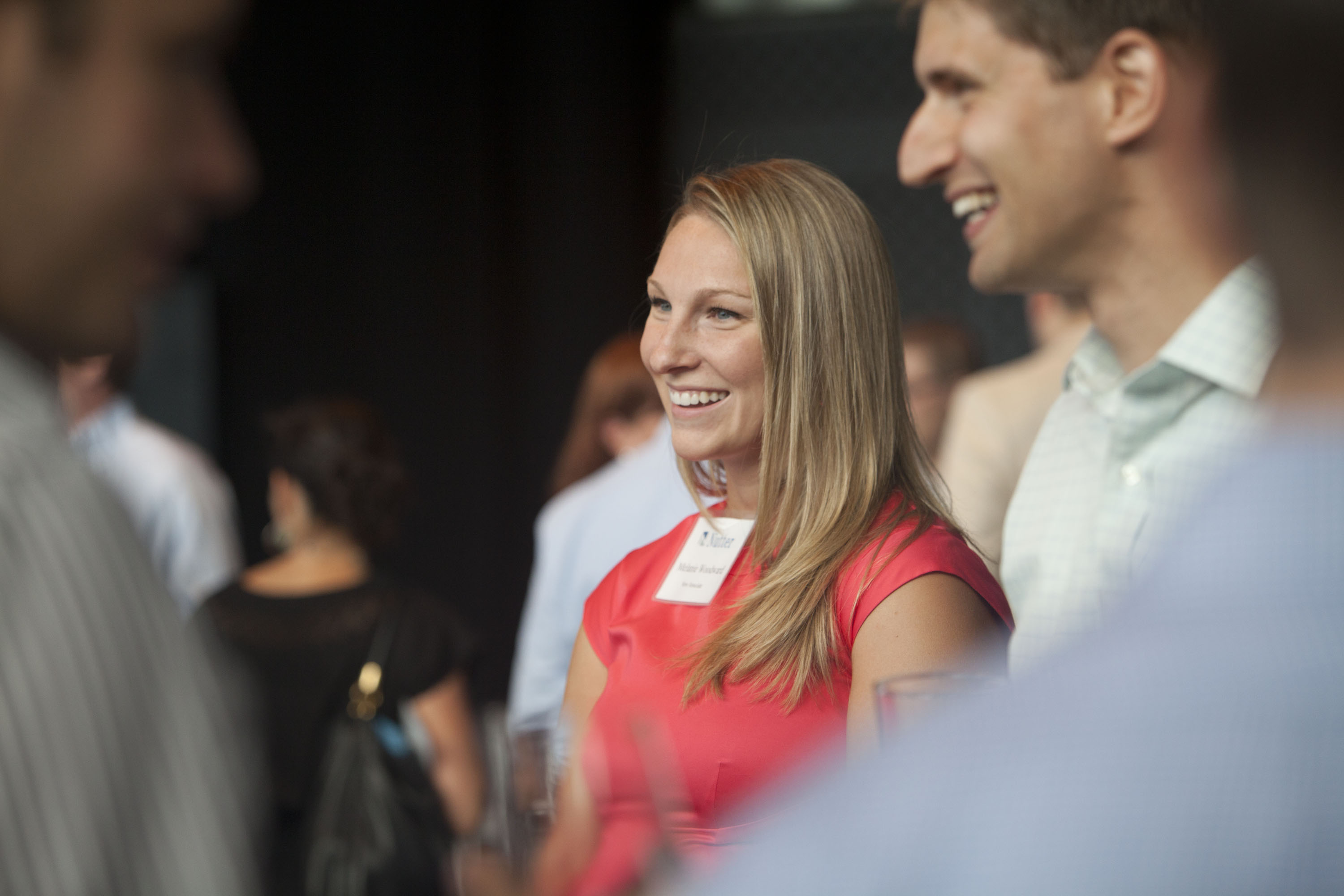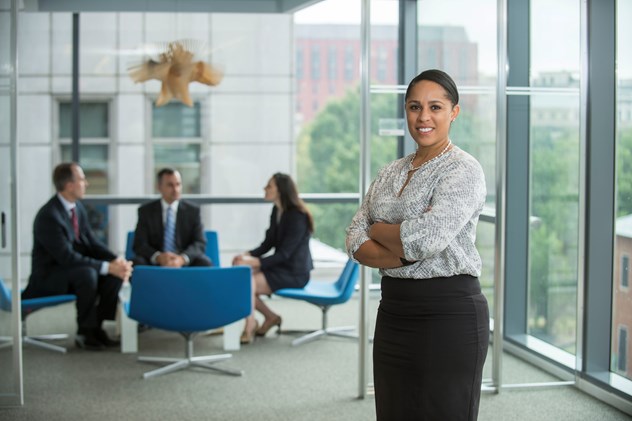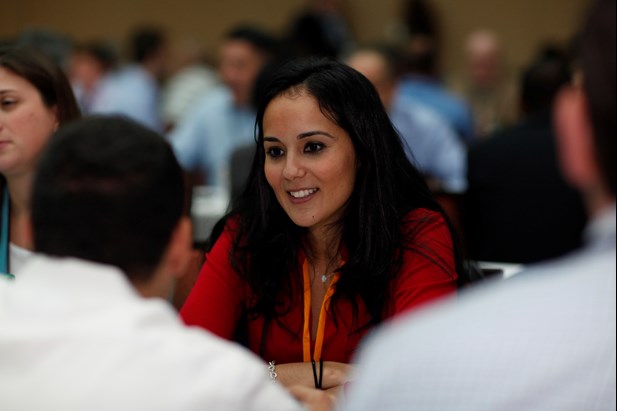
Here's a round-up of OCI tips taken from our many conversations with hiring partners, associates involved in recruiting and other market experts this year...
Main photo: Nutter
Get as much interview practice as you can before OCIs
-
“To the extent that this generation has a weakness, it's that they're sometimes more comfortable communicating digitally. To succeed at a law firm you have to be able to communicate well face to face. Students should do mock interviews more than they do. Law firms want to hire adults that they can put in a room with other adults. When people fail despite their credentials, it's usually a failure with regards to adulthood in the interview setting.” – Jim Leipold, executive director of NALP
-
“We need well-rounded candidates who have more to them than just top grades. Professional work experience and evidence of extracurricular activities are definitely a plus. We also put a lot of weight on oral and written communication skills.” – Manu Gayatrinath, hiring partner, Latham & Watkins
Do your homework on the firm
-
“We like to know that people are looking at us because of who we are, not just as another prestigious BigLaw firm.” – Jones Day associate
-
“We have a unique structure and organization and programs that have been very deliberately planned and implemented to further our goals... If candidates don't know these things, they haven't taken the time to learn about us.” – Sharyl Reisman, hiring partner, Jones Day
-
“Obviously there's information online, but going the extra mile makes a difference – for example, looking up law school alums to see if there are people at the firm they can contact, or other people in their network that enable them to connect with lawyers to learn about the firm. This type of preparation provides very useful information, and also helps them to develop professional alliances. Those contacts they develop will often then reach out to the person interviewing on campus and say 'I know you're interviewing so-and-so today – I had the opportunity to meet them and I like them, so you should take a closer look at this person.' But that doesn't happen unless you plan enough in advance. These types of things are impressive and show that an applicant is truly interested in the firm.” – Tina Martini, hiring partner, DLA Piper
- "Students need to come well prepared, knowing a lot about the firm, and come with questions. They need granular knowledge about Nutter which shows they have thought about it carefully." – Matt Bresette, hiring chair, Nutter
Make sure you can talk about everything on your resume in a relevant way
-
“If something is on a resume, I will ask about it – people need to be able to articulate everything on there. It's also important to me that they're able to discuss a legal issue they've worked on.” – Paul Hastings associate
-
“Talk about your experience – can you discuss it intelligently and tell me what you learned and took from it? We need people who can both do the work at Skadden and learn from their experience. It's not good if you have someone with a great resume but they can't talk about it or they're arrogant.” – Skadden associate
-
“We ask questions to confirm what we know based on resumes, but to try and find out to what extent a candidate's interests and work experience align with the firm's culture, strategy, and philosophy on how to best serve clients.” – Tina Martini, hiring partner, DLA Piper
-
We heard about a candidate who'd “done bull riding, it was right at the bottom of the resume and that came up in interviews. It acted as a nice icebreaker!” – Baker McKenzie associate
Explain how your experiences relate to BigLaw generally and your interviewer's firm specifically
-
“First I ask them about a challenging experience candidates have had in law school or another job. We're looking for people who not only respond to challenging situations well, but are creative problem solvers, someone who can be collaborative and take constructive criticism.” – DLA Piper associate
-
“If candidates can talk about the experiences they've had and how that ties into what we do, it shows they really know and understand what we do here, and shows the level of interest and level of research they've put in.” – Beth Deeley and Jason Kanner, recruiting vice chairs, Kirkland & Ellis
-
“Whether you've spent time doing Teach for America, or been in the military, or worked in consultancy, we want to hear how your experiences have shaped your development, why what you've learned has brought you to us, and how those experiences will make you an important addition to our team.” – Manu Gayatrinath, hiring partner, Latham & Watkins
-
"We want people who pay close attention to detail, but with the self-confidence and demonstrated ability to solve problems. That can be shown in the work that they have done, in sports or in their personal lives. We encourage people to talk to us about those issues and tell us about the different challenges that they have faced, and how they have dealt with them.” – David Greenwald, chairman, Fried Frank

Photo: Fried Frank
Ask intelligent questions enthusiastically
-
“People who ask a lot of questions about the firm to demonstrate their enthusiasm are the ones that tend to do well in interviews. I hate it when I leave ten minutes for candidate questions and they're like 'nope I got nothing'.” – Seward & Kissel associate
-
“Someone who is enthusiastic” really stands out: “Someone who is excited to be here, and has clearly done their homework on the firm. They're asking specific questions about the firm and its direction – more than just those surface level questions.” – Eric Williams, hiring partner, Haynes and Boone
-
“I like those who seem excited. I remember how people make me feel, not what they said. I'm already so busy that if someone is low energy and the talk is dull I just feel kind of 'eurgh'.” – Skadden associate
-
“Learn the lingo” and “read the news on the practice you're going into – that way you can have an intelligent conversation about it.” – Kirkland & Ellis associate
-
“We appreciate when candidates show enthusiasm and knowledge of our practice and when they can articulate why they want to come to the firm.” – Beth Deeley and Jason Kanner, recruiting vice chairs, Kirkland & Ellis
Present yourself as someone others would want to work with
-
“We can only tell so much from your resume and transcripts. Really it's more about whether or not we want to spend 50 hours a week working with you. Can you make sound decisions and can I sit you down at a client lunch?” – Sidley Austin associate
-
“We hire people from a wide range of backgrounds, but the common factor is that you'd want to spend a lot of time with them. A successful lawyer here is not just a skilled technician, but a professional who is able to work as part of a close-knit team, and connect on a personal level with colleagues and clients. You can see it when you meet with someone face-to-face and you can see what they have done on their resumes, how involved they have been in their activities, and how engaged they are in their various communities.” – Eve Howard, managing partner of DC region, Hogan Lovells
What questions might you get?
-
“The conversation tends to be organic, but we try to get a sense of the level of interest the candidate has in a particular office or practice area. We also try to get an understanding of someone's initiative, and whether they're energized and excited about the practice of law.” – Beth Deeley and Jason Kanner, recruiting vice chairs, Kirkland & Ellis
-
“We especially like to see people who've worked in a legal role during their 1L summer. During the interview, we try to unpack the legal issues they encountered to see how they analyzed the problem.” – Maurice Blanco, hiring partner, Davis Polk
-
“I can’t say I have a set of 'go to' questions – I try and tailor questions to a student’s specific experiences listed on their resume or shared during the interview. One of the things that I personally look for is a 'self-starting' quality that I think helps junior lawyers (and senior lawyers) succeed.” – Justin Storms, hiring partner, Linklaters
- If you can avoid “sounding scripted and I lose track of checking the questions I've jotted down, that makes a difference. If you can make me comfortable, you'll probably make a client comfortable. The best interviews end up turning into nice conversations.” – Foley & Lardner associates

Photo: Foley & Lardner
How can you stand out at interview?
-
“I think when students have really gone that extra mile to learn about us from the website, what we do, how we do it – including by reaching out to some of our lawyers or students who have summered with us – that shows real interest. Our lawyers are always willing to talk to students, from their own law school, or others.” – Sharyl Reisman, hiring partner, Jones Day
-
“Law school resumes look the same. We're looking for a personality fit more than anything else. Be honest about who you are in the interview.” – Cadwalader associate
-
“My advice to law students is to look for opportunities in areas in which you can excel. Determination to distinguish yourself from the many excellent candidates that we see is key.” – Steven Sonberg, managing partner, Holland & Knight
And finally, get ready to impress several interviewers all over again during callbacks
-
“Law students who interview here end up interviewing with a half dozen or so partners, so we get a lot of views and feedback to work with.” – Eric Schiele, hiring partner, Cravath
-
“It's not just about law school academics; part of the equation is the personalities of the people we're hiring, and whether they fit into our culture. That's why we have an extensive OCI program and generally include meals during the callback process – we want to spend more time with our potential recruits.” – Leslie Ripley, chief recruiting officer, Gibson Dunn
-
“For a lot of schools we do two on one where it is someone like me and somebody who is a third to sixth year associate. Back in office, it is a mix of partners and associates. Among five interviewers it is often 2:3 partners to associates.” – Brad Keck, hiring partner, Mayer Brown
-
“During the callback interview, candidates usually meet with two partners, two associates, and a hiring partner. Depending on when the interviews take place, they may also have lunch with a group of our lawyers. Our interviews are substantive and they tend to focus on the students’ individual experiences, interests, and long-term career objectives.” – Sergio Galvis, global head of recruiting, Sullivan & Cromwell